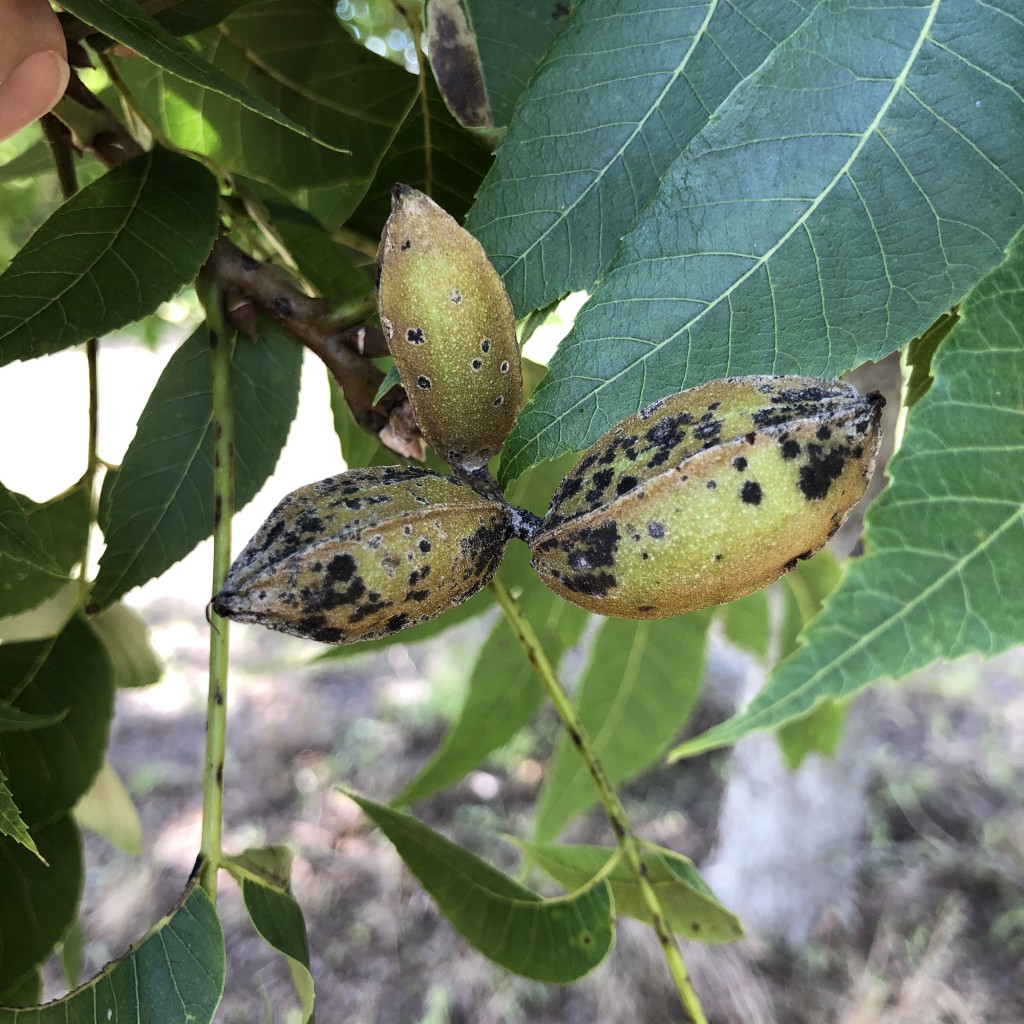
The calendar may say it’s time for pecan producers to spray for scab but the weather conditions, combined with the current market season, say otherwise.
Lenny Wells, University of Georgia Cooperative Extension pecan specialist, says it still early to start spraying for scab disease this week. Next week should present a more optimal timeframe. It would also coincide with growers’ plans of reducing input costs.
“One of the goals that most growers had going into this season was to try to save some money because they saw what the prices were this year. They know that with the kind of crop we had last year, we’re not likely to have a heavy crop this year, overall,” Wells said. “With the potential for low prices out there, saving money is on everybody’s mind. Fungicide sprays make up 12% of the budget of growing pecans; 12% of the variable costs of production. That’s one big area you could potentially save some money in.”
Slower Progression
Pecan trees are also progressing later than normal; about a week to 10 days later. The up-and-down weather conditions that consist of cold temperatures during Easter weekend and the current warmer temperatures have slowed the progression of the trees’ foliage. Some varieties like Elliott and Cape Fear have budded out. Others like Stuarts and Desirables are just now starting to come out.
“By the calendar, growers are used to spraying by this time. There are some areas where there are some varieties where we’ve had heavy scab pressure or the site has heavy scab pressure because of the lay of the land; and you’ve got varieties that scab. Those situations, I can see an argument being made for going ahead and starting,” Wells said. “For the most part, I think it would be a little premature to start this week. Maybe next week, I think would be more like it.”
Spraying too early will also have repercussions later in the growing season.
“If you go ahead and jump out there and start spraying now when you don’t really have that much foliage to cover and the foliage development is later, that means that the crop development is going to be later and then our crop maturity and harvest is going to be later. If you start now and there’s not a whole lot out there to spray, that’s just extra spraying you’re going to have to do,” Wells said. “There’s soon going to be a point in the season where you’re going to have to spray. If you start now, you’re just extending that period of time out to where you’re going to have to keep spraying possibly more than you normally do.”









